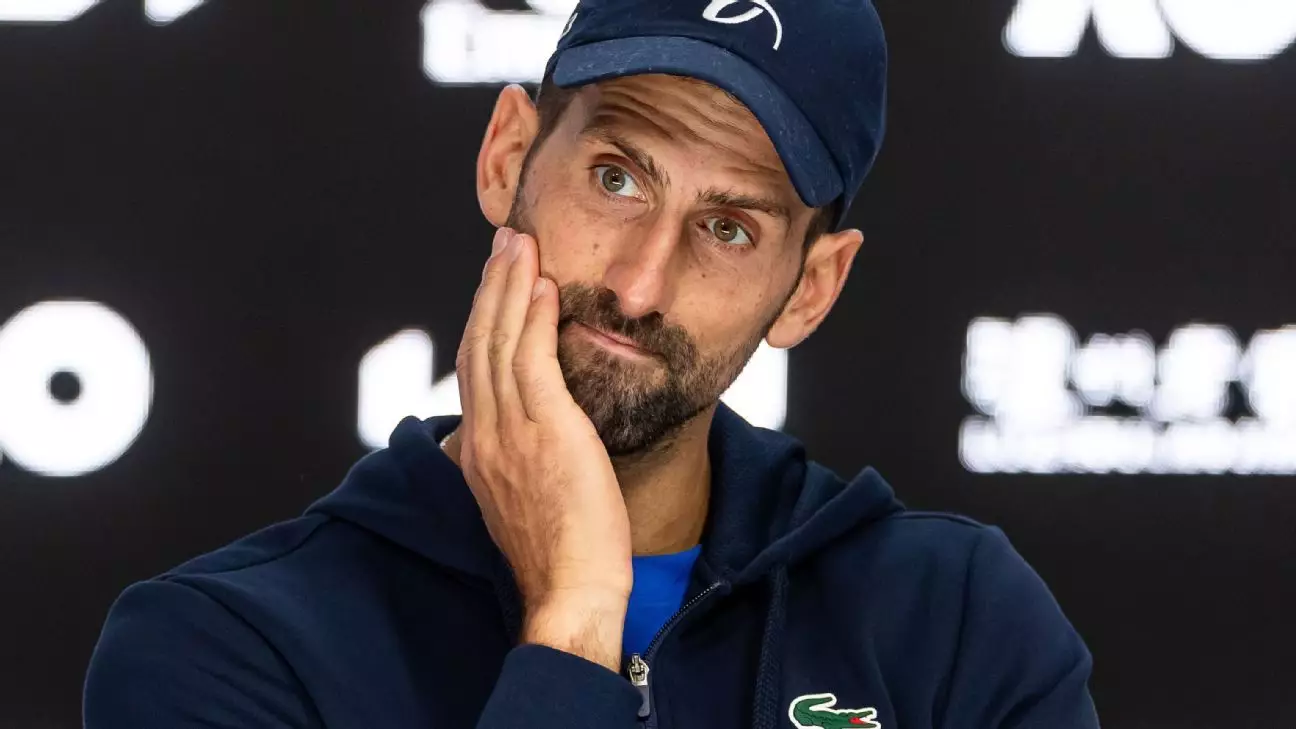In a recent press conference, tennis superstar Novak Djokovic made headlines with his candid comments on the antitrust lawsuit initiated by the Professional Tennis Players’ Association (PTPA), an organization co-founded by Djokovic himself. The lawsuit, asserting that major tennis organizations operate as a “cartel,” raises significant questions about player representation and earnings in a sport often lauded for its rich tradition and elite players. Despite his notable absence from the plaintiff list, Djokovic remains at the forefront of advocating for players’ rights, underscoring a critical need for reform in the strained dynamic of professional tennis.
Djokovic’s observations illuminate a growing discontent among players regarding the inequities in revenue sharing and governance in tennis. The current system seems to favor organizational control over player autonomy, which is a concern echoed by many athletes at various levels of the sport. According to Djokovic, it’s imperative that players not only receive enhanced financial compensation but also gain a more substantial voice in the decision-making processes that directly affect them.
The Challenge of Unity in Tennis
One of the most intriguing aspects of Djokovic’s stance is his desire to maintain unity within the sport, even amid the tumult of legal actions. His call for solidarity contrasts sharply with the opinions of various players, like Carlos Alcaraz, who have expressed reservations about the lawsuit. Alcaraz’s concerns, including a lack of communication and understanding regarding the claims of the lawsuit, showcase the rifts that can emerge when foundational decisions are made without comprehensive dialogue among all stakeholders. Djokovic’s insistence that other players “step up” suggests there is an expectation for collective accountability and shared responsibility among athletes regarding their representation.
Yet, despite his advocacy for increased influence and resources, Djokovic’s duality of supporting unity while recognizing the necessity of dissent brings to light the complexities inherent in reforming entrenched systems. If players like Alcaraz feel inadequately informed and represented, the likelihood of a fractured response to the lawsuit and its implications is heightened.
A Critical Crossroads for Professional Tennis
The heart of the matter lies in a fundamental question: Can players genuinely unite to advocate for their interests without compromising the sport’s integrity? Djokovic hopes for a collaborative approach among the various governing bodies, suggesting that while constructive criticism is essential, it must come from a place of mutual respect and understanding across all levels of play.
While acknowledging areas where he doesn’t align fully with the lawsuit’s claims, Djokovic offers a refreshing perspective that calls for dialogue over division. In the intricate world of professional sports, especially within a complex framework like tennis, finding common ground could prove to be as challenging as the legal battles facing its players. The growing sentiment around increased player empowerment indicates a shift on the horizon, but the pathway remains fraught with contention and complexity.
If the sport is to evolve, it will require not just robust conversations but tangible actions that prioritize players’ rights and interests. Djokovic’s commitment to addressing these critical issues, despite the potential backlash from his peers, signals a willingness to confront uncomfortable truths in pursuit of a fairer landscape for future generations of tennis professionals. As players grapple with their collective identity and rights, the question remains: will they forge a new future marked by unity and empowerment, or will the divisions deepen?


Leave a Reply